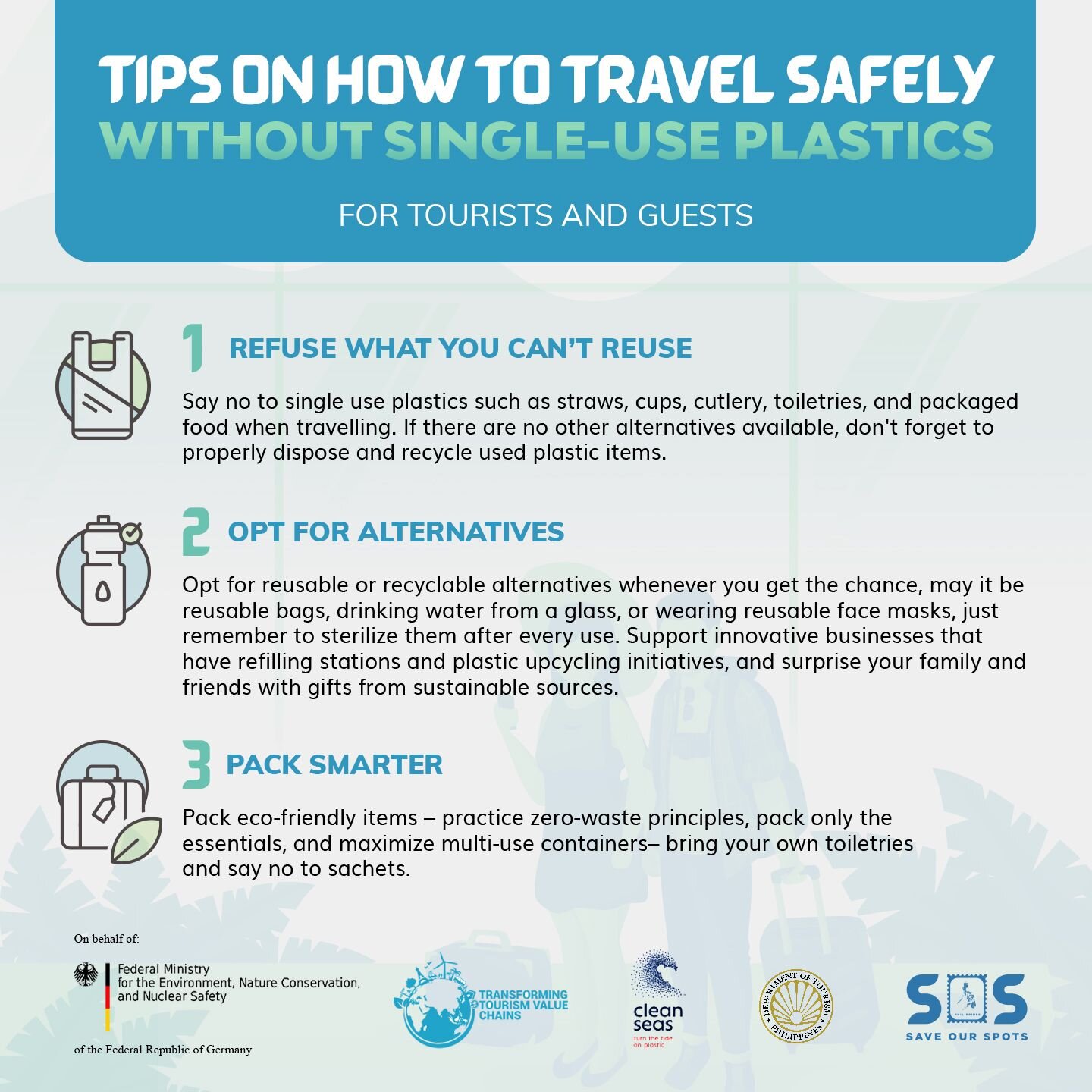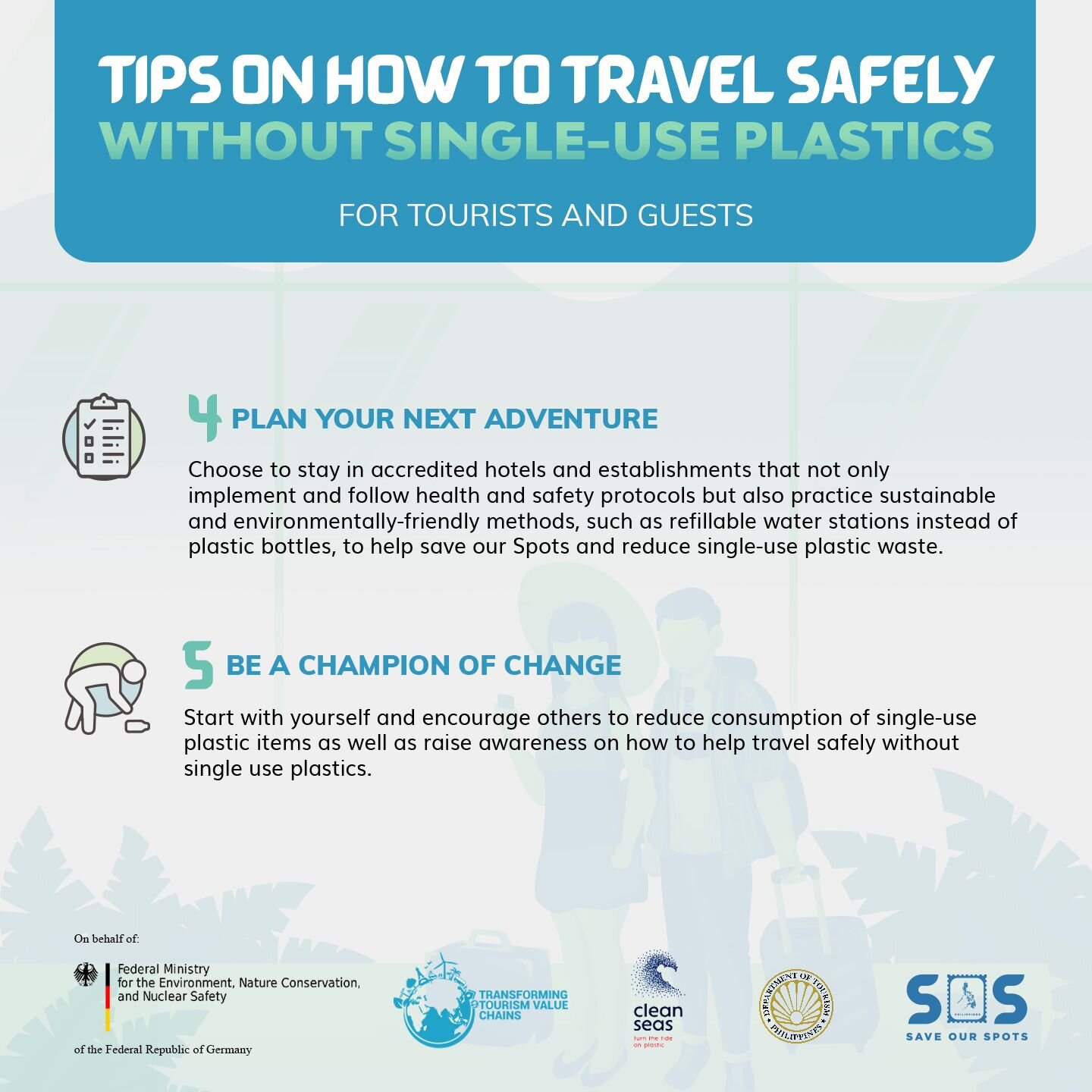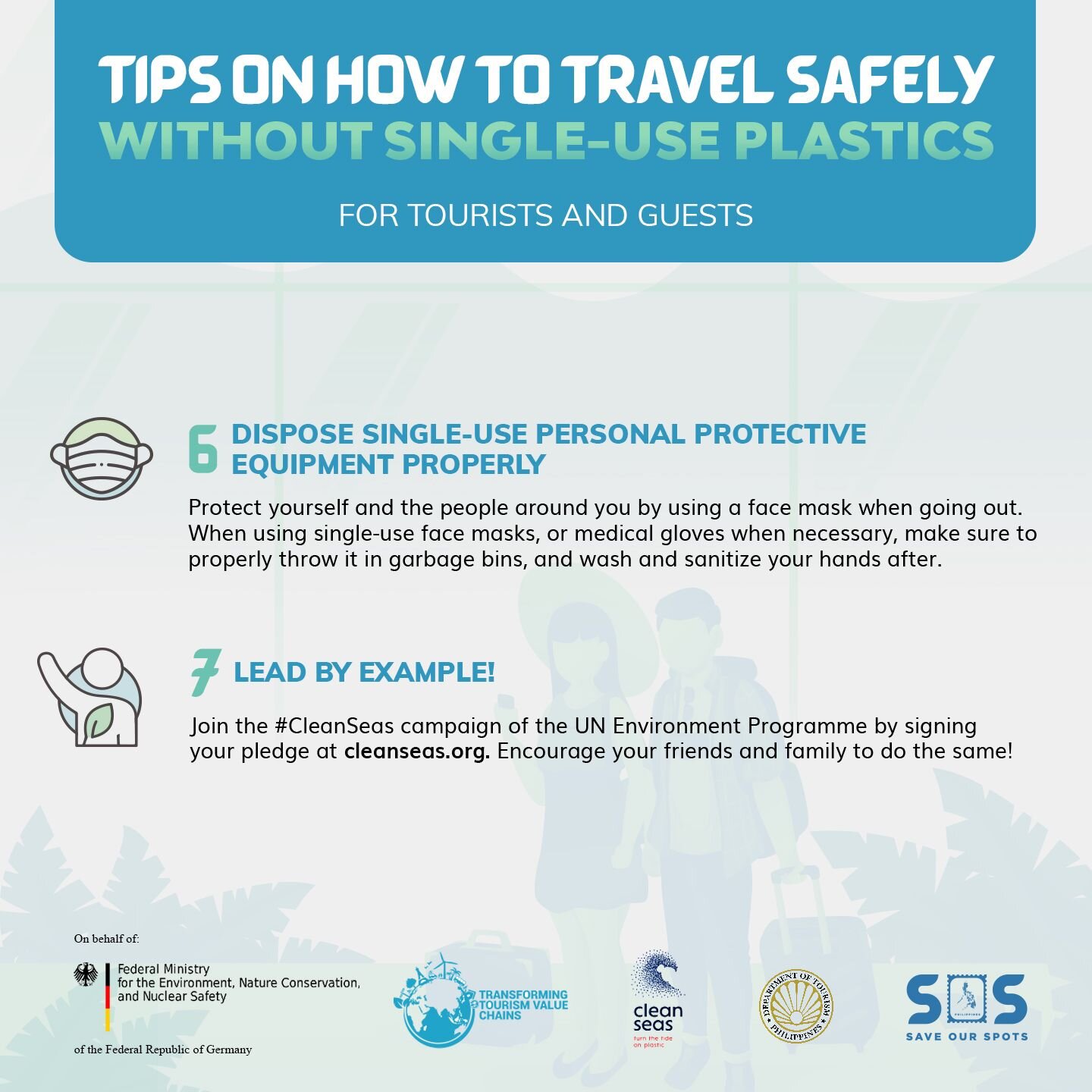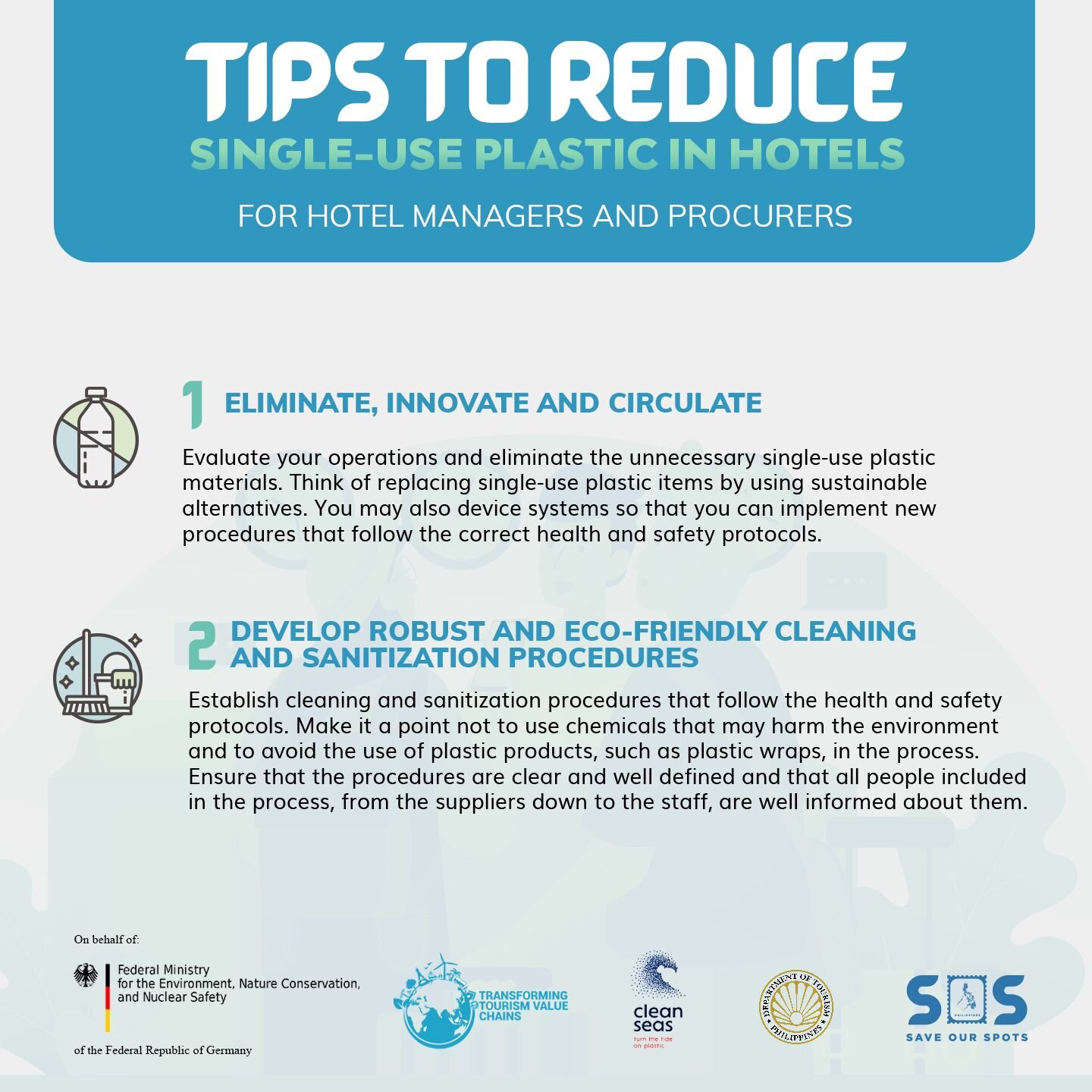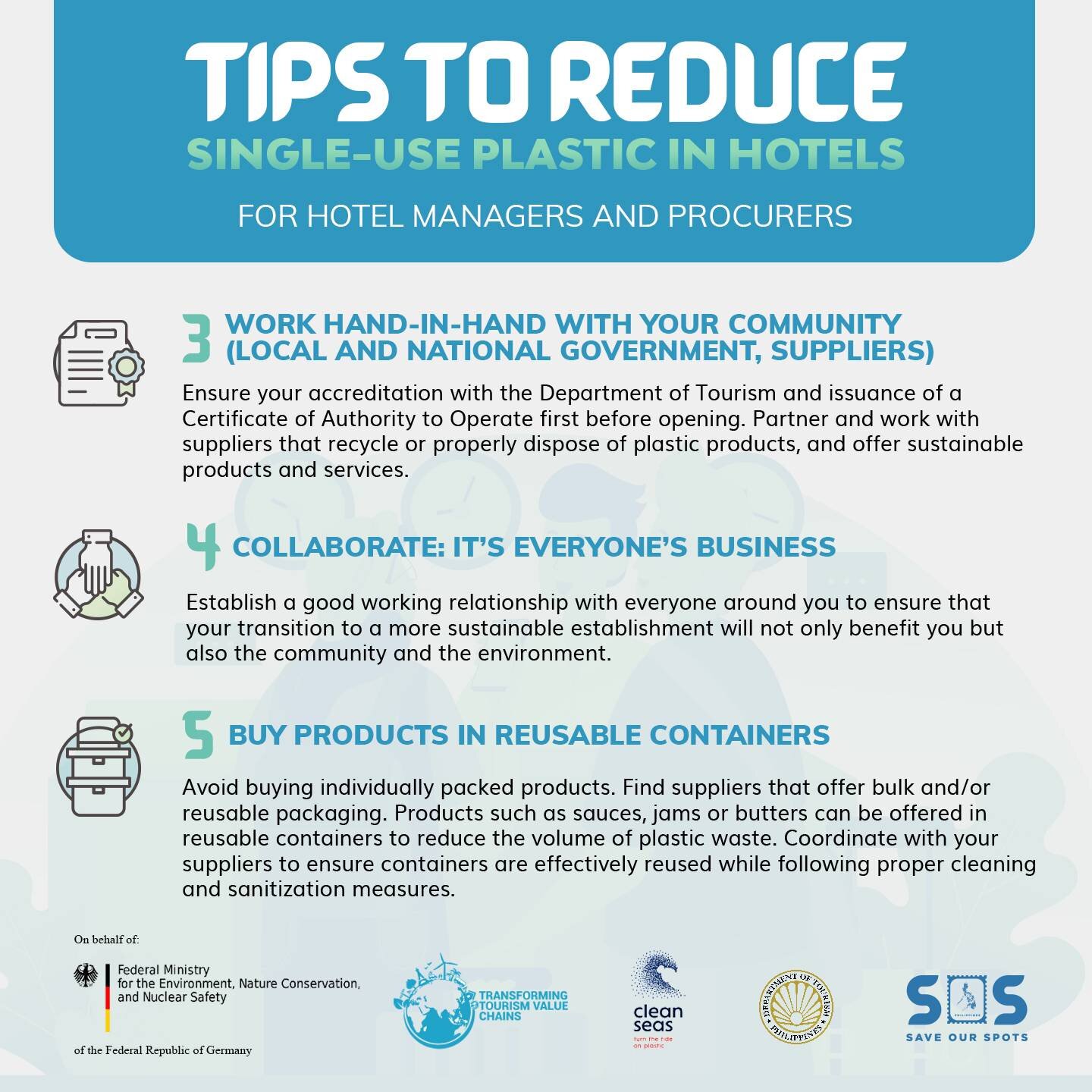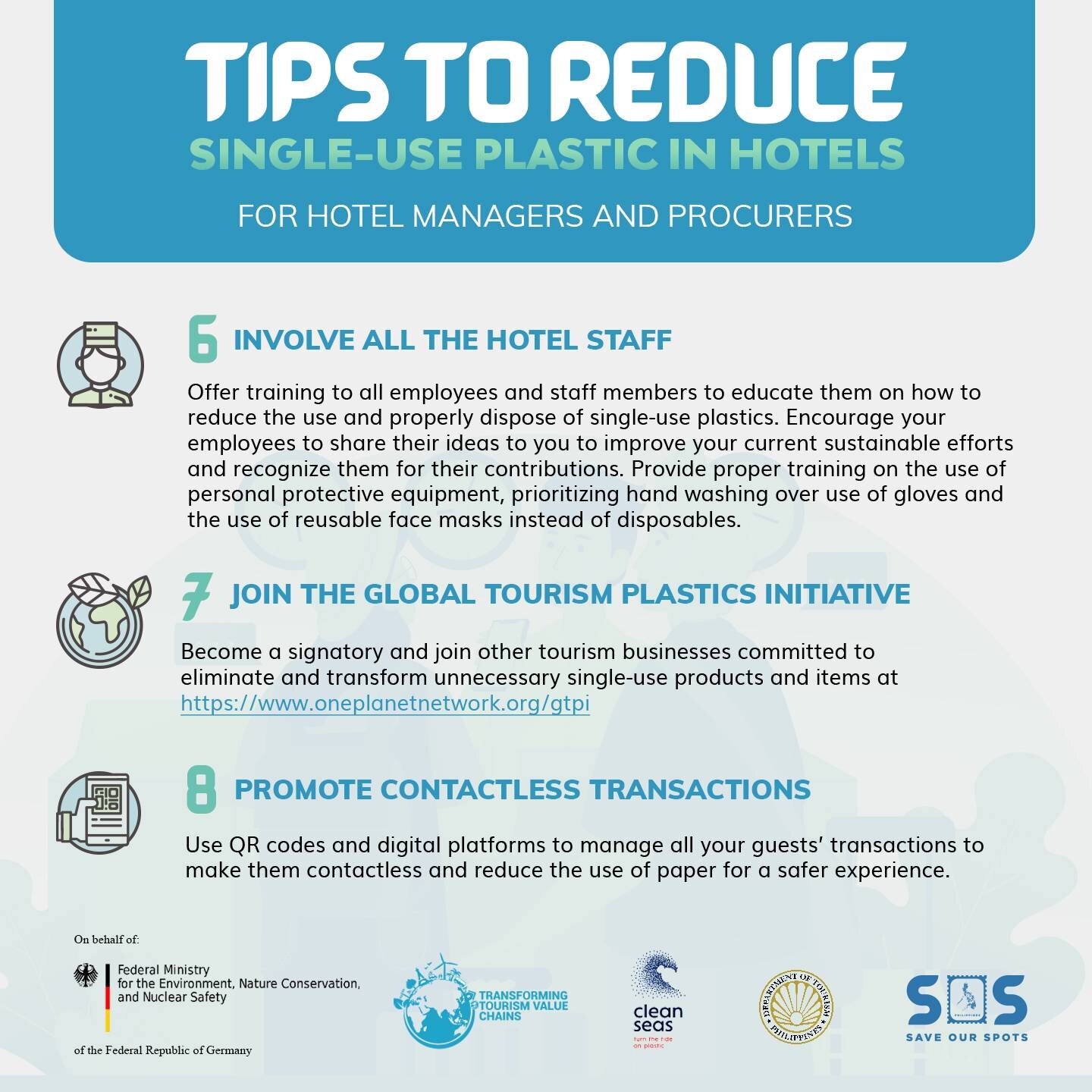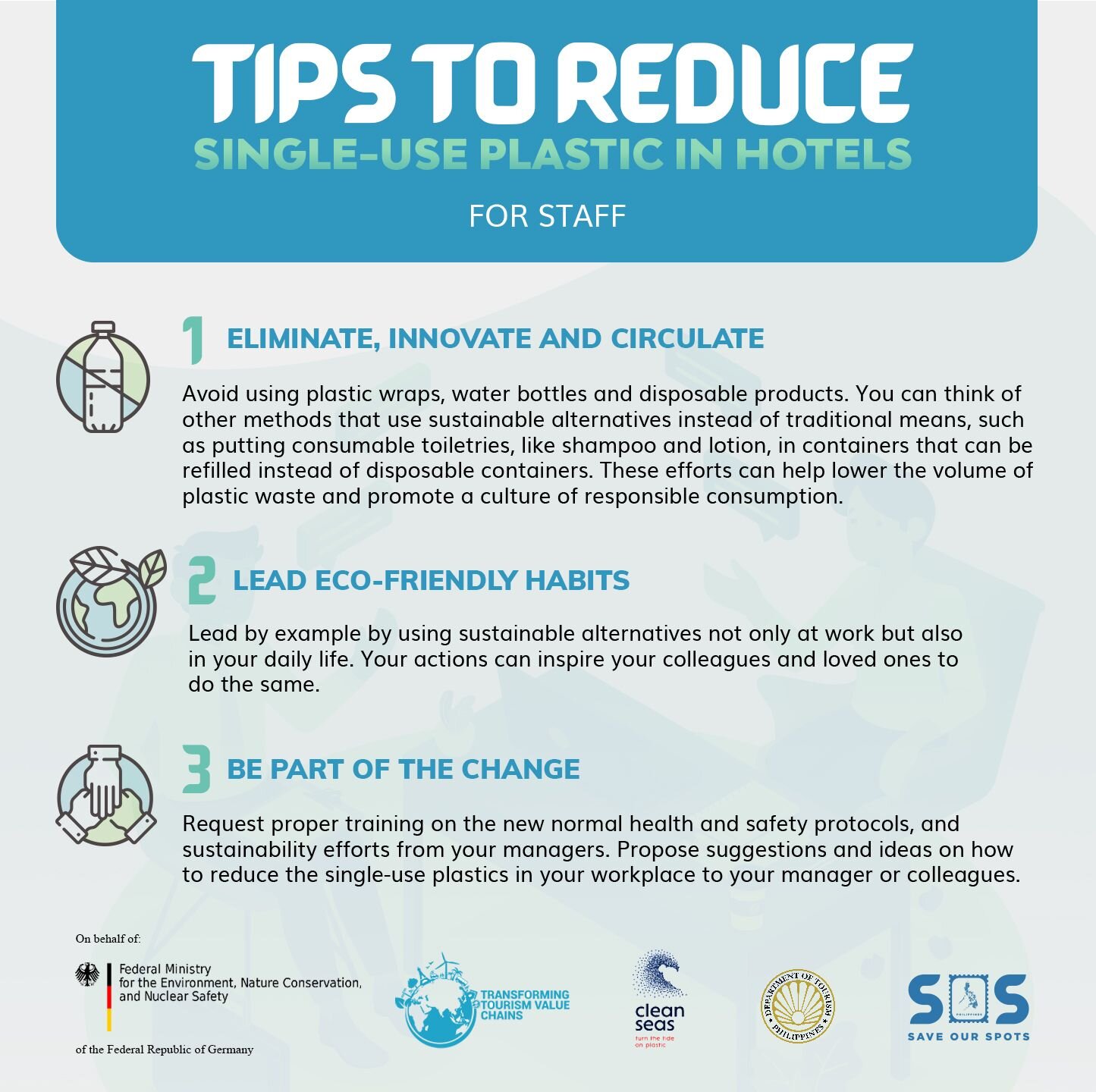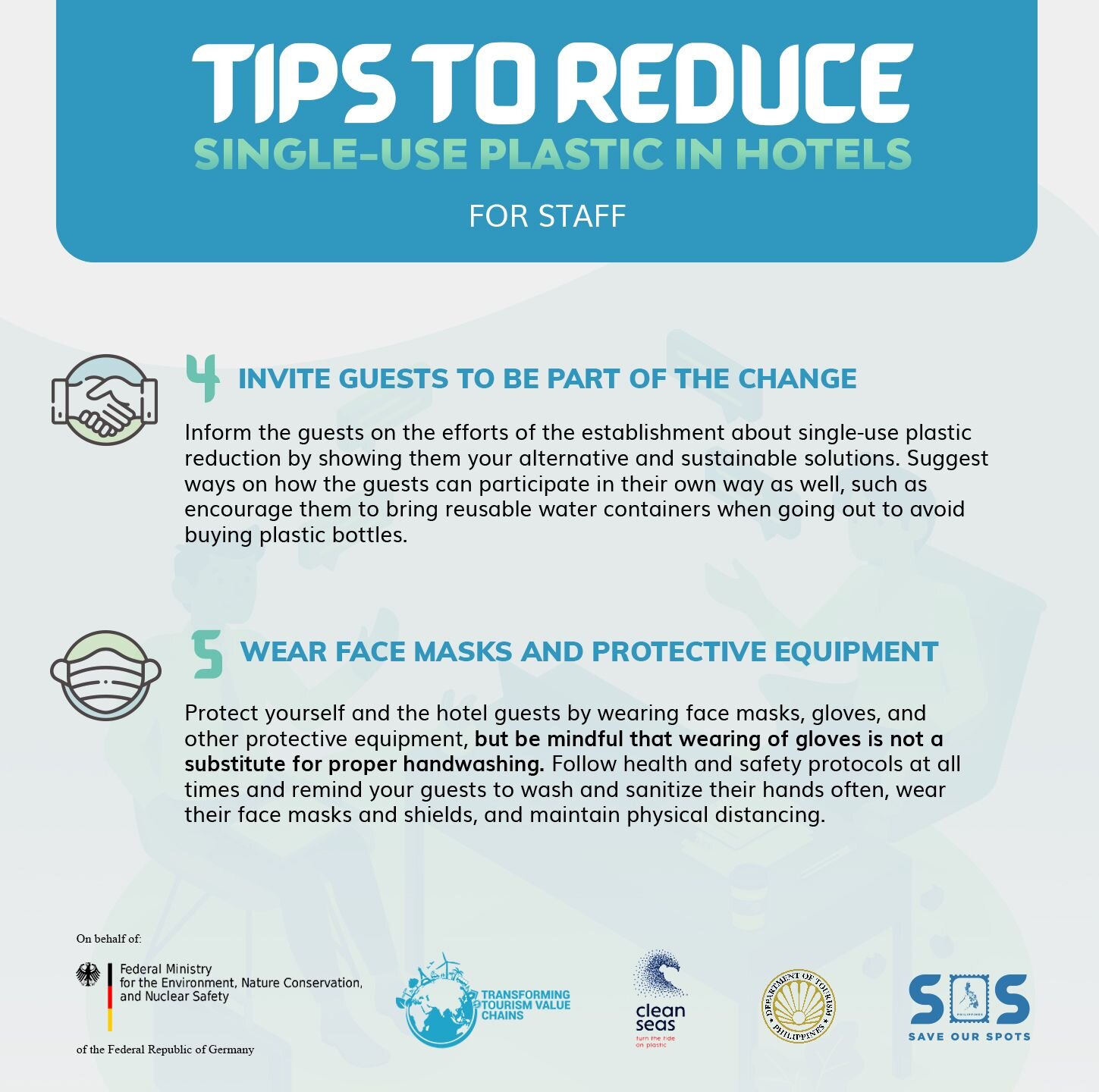GUEST BLOG: PHASING OUT PROBLEMATIC SINGLE-USE PLASTICS FROM THE PHILIPPINE TOURISM SECTOR DURING COVID-19
Plastics have been around the world for a long time and people have become dependent on it, to the point that globally, one million plastic drinking bottles are purchased every minute, and five trillion single-use plastic (SUP) bags are used every year, according to the UN Environment Programme. This contributes to the eight million tonnes of plastic being washed to the world’s oceans every year, which has affected not just marine biodiversity but also communities and wildlife. Recent reports from the UN Conference on Trade and Development (UNCTAD) found that plastic pollution only became worse in the wake of COVID-19 due to an increase in the use and disposal of single-use items such as medical face masks, plastic gloves, hand sanitiser bottles and food packaging.
In light of these factors, the Philippine Department of Tourism (DOT), through its sustainability campaign Save Our Spots, has collaborated with the Philippine Center for Environmental Protection and Sustainable Development, Inc. (PCEPSDI), through its Transforming Tourism Value Chains (TVC) project, in cooperation with the UN Environment Programme (UNEP), in creating an awareness campaign to reduce single use plastics (SUPs) in the tourism sector while keeping in mind health and safety protocols. Key messages of the campaign are aligned with the Global Tourism Plastics Initiative (GTPI), which unites the tourism sector behind a common vision to address the root causes of plastic pollution, by enabling tourism stakeholders to lead by example to shift towards circularity and reduction in the use of plastics.
The campaign, funded by the Federal Ministry for the Environment, Nature Conservation and Nuclear Safety under their International Climate Initiative (IKI), also welcomes The Reef-World Foundation as one of its partners in promoting such key messages that are relevant at this time; especially as all parties involved seek a shift to more sustainable tourism practices. The key messages are designed with three audience groups in mind: tourists and guests; hotel managers and procurement officers; and hotel staff.
In the campaign messages, tourists and guests are encouraged to travel safely without SUPs by packing only essentials, choosing accredited establishments that observe health protocols and opting for reusable face masks and other personal protective equipment (PPE) while taking care to wash and sterilise these afterwards.
Hotel managers and procurement officers, being one of the key stakeholders in driving the direction of business operations, are also given some tips to start reducing SUPs, by considering more sustainable alternatives to disposable items, developing thorough cleaning procedures, working hand-in-hand with suppliers and government and promoting digital and contactless transactions.
Last but not the least, hotel staff and personnel are also key audiences of this campaign, considering that they are the first in line in accommodating guests and working tirelessly behind-the-scenes in maintaining the hotel or establishment’s upkeep. Staff are then encouraged to reduce SUPs in their own ways by requesting training on the company’s sustainability initiatives, leading eco-friendly habits in work and personal life and inviting guests to take part in environmental programs and practices of the business.
The campaign directly supports the Roadmap for Low-Carbon and Resource-Efficient Tourism in the Philippines, which is a strategic document developed by the TVC project in line with the Sustainable Development Goals and advocating four systemic solutions to achieve sustainable tourism: sustainable food value chains, sustainable events, beating pollution from the sector and sustainable energy. This campaign supports the component of beating pollution from the sector, with some of its strategies being improving solid waste management and eliminating single use plastics.
To further encourage the hospitality sector to take action on plastic pollution amidst the COVID-19 pandemic, the campaign also serves as an open invitation for tourism establishments to register and participate in a training webinar entitled “Responsible Tourism through Plastic Upcycling and Waste Management” on December 15, 2020, at 1:30-4:30pm. The training is organised by the TVC project, in collaboration with Clean our Oceans Project (CoOp). It aims for participants to learn how their tourism businesses can minimise unnecessary usage of plastic packaging given the threat to marine biodiversity and from the COVID-19 pandemic. Further details on the training webinar such as the registration form and the event program will be posted on DOT’s and TVC’s Facebook platforms on December 9, 2020.
For those interested to know more about the Transforming Tourism Value Chains project, feel free to get in touch with its Project Officer, Mr. Kiko Velhagen through his email at kiko.velhagen@pcepsdi.org.ph or tvc4relcd@gmail.com.

